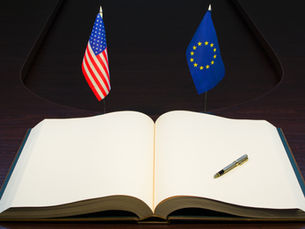Climate, Conflict, and Migration – the new ‘triple nexus’?
- Andrew Gilmour

- Sep 11, 2025
- 7 min read
Despondency on climate action is understandable, though the bigger picture is less negative. To truly understand what lies ahead, we must consider the links between climate, conflict and migration.
Andrew Gilmour is the former UN Assistant Secretary-General for Human Rights, author of The Burning Question: Climate and Conflict – why does it matter? (2024), and a Senior Fellow at The School of Oriental and African Studies (SOAS) in London.
‘COP season’ is coming round again. But with only a few weeks before COP30 opens in Belem, Brazil, the mood among many of those planning to attend seems despondent. The Trump administration has moved to aggressively undermine even the basic concept of anthropogenic (or human-driven) climate change as a reality, together with many of the actions needed to mitigate or adapt to it.
This has been compounded by a perceived reduction in seriousness by European countries, as far-right parties pour scorn on climate science, while aid budgets (which include climate finance) have been cut on both sides of the Atlantic, and net zero commitments by banks and fossil fuel companies are being watered down or reversed. A headline in the Financial Times on 11 August summed it up, “Big Oil heeds call to ‘drill, baby, drill’ in bet green transition will slow.” Less than one week later, UN talks in Geneva failed to reach agreement - after three years of negotiations - on a treaty on plastic pollution. All of this has combined to create a sense for many of us that our planet and its climate are in considerably deeper peril than it seemed even one year ago.
Yet there are many reasons for maintaining a vital sense of optimism, or at the very least of ‘silver lining-ism’. To take one example; in early August President Lula of Brazil vetoed significant parts of a draft law that had gone through parliament but which the Environment Minister had said represented the biggest potential setback to the country’s environmental protection in four decades. A month previously, the International Court of Justice issued a unanimous finding that the obligations of the 2015 Paris Agreement are legally binding, and countries could face legal consequences and major demands for reparations and compensation if they fail to act on the “urgent and existential threat” of climate change. Looking at the issue from an economic perspective, the major drop in the prices of numerous products and technologies essential for combating climate change (solar panels, wind turbines, electric vehicles, storage batteries) means that positive tipping points can reasonably be expected in all of them, and last year $2 trillion was invested globally in clean energy sources, vastly outstripping the $1.2 trillion invested in fossil fuels[1].
All of these developments – and there are many other positive signs too – are harbingers of fundamental shifts in public opinion, politics, law, technology, and commerce. But the climate crisis, and new obstacles to dealing with it created by some of the key players, are also coinciding with other broad global developments: the rise in conflict (last year, there were more live conflicts underway than at any time since 1945); and the general worldwide push-back against human rights and respect for international law. These phenomena are linked in various ways, to the detriment of almost everybody.
But general understanding of these linkages and how they operate is still fairly limited. It is increasingly recognised that climate change is an exacerbating factor in the spread and intensity of conflict. To be sure, the two conflicts that for the past two years have dominated global media coverage – Ukraine and Gaza – have not been caused by climate change.
On the other hand, the conflict that is likely to lead to the greatest loss of life – Sudan – is very much connected to the stress of increased competition for ever-dwindling water supplies and fertile land. Referring to the Darfur conflict of 20 years ago, the Economist magazine recently suggested it had been the first climate conflict in history, clearly implying – rightly – it was unlikely to be the last. And while human rights abuses, corrupt governance, and religious or ethnic exclusion are almost invariably the primary causes of war and conflict around the world, few now deny the increasing salience of climate stress as a factor in exacerbating and prolonging armed conflict.
But what is less well understood is that it is not just climate change itself that is a growing direct driver of conflict. Rather, it is also the actions that we take to mitigate climate change that have the potential to cause conflict. In the higher income countries of the global North the whole set of issues relating to “net zero wokeness” and the “climate hoax” has started to be used as a wedge issue in culture wars to divide societies and electorates. So far, this has remained largely non-violent, although the gilets jaunes protests in France in 2018 – a movement whipped up by the belief that ‘metropolitan elites’ were discriminating against rural voters because fuel taxes had been raised as a way of reducing carbon emissions – gives an indication of how conflict may develop even in advanced economies. Governments will need to tread very carefully to balance the need for rapid action in reducing emissions in line with the Paris Agreement of 2015 while making it harder for such action to be twisted by far-right populist movements.
A far more serious threat to peace and stability resulting from the energy transition is likely to emanate from those countries that overwhelmingly depend on oil revenues to sustain their national budgets, security and social services. Iraq, Libya and Nigeria are three examples that fall into this category. As the world is gradually weaned off oil and into renewable energy, countries such as these will find their once assured revenue stream will be significantly curtailed. Since many such countries have already experienced substantial conflict, there is a pressing need for oil-producing states to diversify their economies and sources of revenue. Otherwise, extremist movements such as Boko Haram, al-Qaeda and Islamic State will continue to be able to profit from the resulting deprivation and lawlessness.
A third broad area of how the energy transition (from fossil fuels to renewables) can contribute to conflict relates to the ‘resource curse’ that for decades has been associated with oil-producing states. Other minerals, including those vital for the transition, can have a similar effect. Both cobalt and copper are extensively mined in the Democratic Republic of Congo, often under brutal conditions and the control of armed groups, with cobalt essential for batteries and copper electricity generation. With the global green transition raising the demand and value of what may be termed “blood minerals for renewables”, so will incentives mount to fight for their control. This can also be seen at a geopolitical level, such as the growing US-Chinese competition for rare earth elements with the former leading many of its allies into banning exports of semi-conductor technology to the latter, provoking a Chinese response of tit-for-tat export controls on strategic metals used for green technologies.
To put this simply, climate change poses a triple threat to stability. First, there’s the direct threat to peace, economic resilience and development. Secondly, we have indirect impacts where the actions we take to combat climate change can themselves fuel conflict. And finally, there is climate migration, which we are already seeing and will grow at pace with significant consequences.
For many analysts, it seems almost an inevitability that tens of millions of people will feel compelled to leave their homes because their lands have become unsustainable and uninhabitable as a result of floods, droughts, desertification, crippling heat waves, rising sea levels and all the various manifestations – more and more in evidence each passing year – of climate change. There is a compelling case to be made that several million of these migrants (or what some people are already calling “climate refugees”) are being forced to move not through any responsibility of their own countries, but rather because the greenhouse gas emissions that bring misery to them have been caused by countries far richer than they are.
There are thus two tectonic shifts likely to increase in scope and force in the next decade and beyond. On the one hand, we see within richer societies a much-reduced tolerance to accept refugees and migrants. On the other, the effects of climate change are going to fall disproportionately on poorer societies, and potentially vast numbers of people will quite simply be compelled to leave their homelands and move to more temperate climes.
The refusal by today’s political leaders to even debate these issues, let alone to start preparing their societies for what is certain to follow, will be viewed by future generations as a failure of unforgivable proportions.
If your organisation needs tailored insights and/ or policy support on potential climate change threats to local economies in any region across the world, get in touch with us at Plato Group.
This thought leadership paper is published in collaboration between Andrew Gilmour and Plato Group Ltd. The usual disclaimer applies.
Andrew Gilmour CMG

Andrew is the former UN Assistant Secretary-General for Human Rights (2016-19), and before that was the Director in the office of the UN Secretary-General for political, peacekeeping, human rights, and humanitarian affairs. In a career spanning 30 years at the UN, he worked in the Middle East, the Balkans, Iraq, Afghanistan, South Sudan, West Africa and Geneva. He was CEO at the Berghof Foundation in Berlin from 2020-25 and is the author of The Burning Question: Climate and Conflict - Why Does It Matter (2024), which explores how climate change is reshaping global security. He has been a Visiting Fellow at All Souls in Oxford and is a Senior Fellow at SOAS in London. Andrew’s writing has been published recently in the Economist, the Financial Times, the New York Times, Der Spiegel, Bloomberg, and numerous other outlets.
Plato Group

Plato Group is a network of global economists, policy experts, academics, and geopolitical advisers. They have held senior positions in governments and central banks all over the world, as well as at the World Bank, International Monetary Fund, the OSCE and leading global educational institutions. They are seasoned practitioners with direct experience in advanced and emerging markets. Plato Group blends international and local expertise, providing comprehensive insights tailored to a client’s specific needs.
Footnotes
Fossil fuels ‘running out of road’ as clean energy catches up, says UN chief, FT July 2025.















Comments